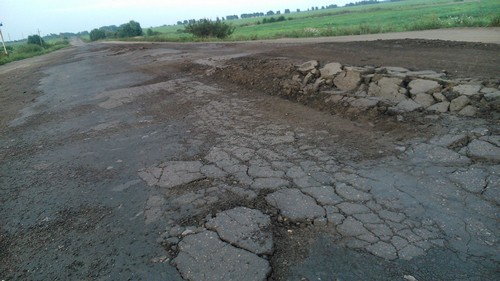Spring suffering

Charges under the Platon system do not cancel seasonal restrictions that are destructive for carriers
Spring is coming! Agree, such nice words. However, pleasant, as it turned out, is not for everyone. Transport workers and carriers are very painfully enduring seasonal restrictions for trucks in terms of the maximum axle load. They believe that the restrictions, while not causing extreme market shocks, create noticeable difficulties. The market expected that the introduction of the Platon system, under which carriers pay year-round tolls, would improve the quality of the roadway and avoid additional spring-summer tonnage restrictions. However, so far in this sense, "Plato" is of little use. Everything remains as it is. Today, the carrier is forced to reduce the load on the axle for one or two months, increasing the number of vehicles, which automatically increases the cost of transportation, - experts shrug. It is assumed that this spring, traffic will also be limited in terms of axle loads, depending on the condition of the roads during the flood period, and in summer, the restrictions will be in effect during the daytime during the heat period (when the air temperature is above 32 degrees).
The problem, meanwhile, has many arguments on each side. Indeed, there are seasons when the road surface is particularly vulnerable and subject to accelerated wear and tear, and restrictions allow roads to be kept to a minimum. However, the same restrictions, in addition to increasing the cost of transportation, entail security problems. Toyota RAV 4 vehicles during the daytime shifts the working day of the truck driver to the dark hours of the day. Our roads are almost unsuitable for nighttime use, the illumination is minimal, so night traffic increases and, as a result, the risk of accidents.
There is a lot of talk in the country about the transfer of freight traffic to night time, which is quite logical and corresponds to international experience. But for this it is necessary to build inter-lane fences, high-quality roadsides, and illuminate the most difficult sections of the road. And today there are no resources for this. So in the end, probably, everything will remain as it is. Both restrictions and the responsibility of the carrier for the weight of the transport, for the integrity of the road, for the safety and cost of transportation. And when all responsibility is dumped into one basket, we know nothing good comes out. The skew will make itself felt with unpleasant consequences. For example, a serious increase in prices for transported goods, which we are seeing today in stores and markets.